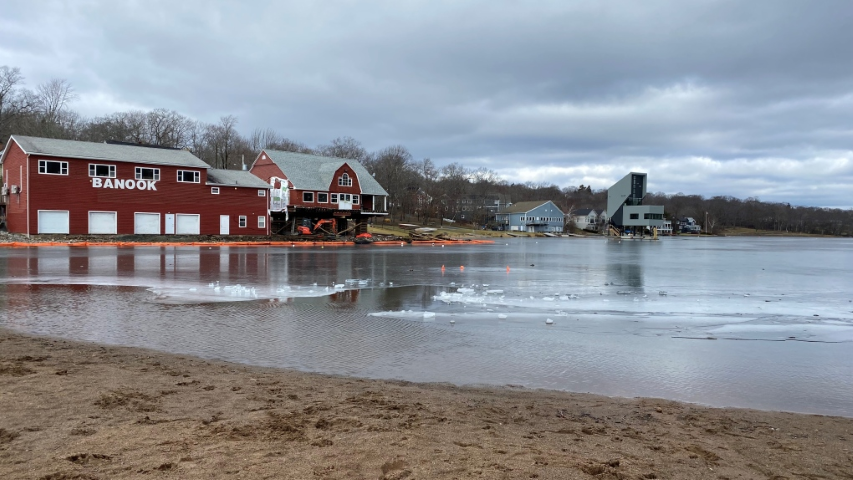
Dartmouth, Nova Scotia, witnesses the presence of a delicate layer of ice enveloping Lake Banook, as captured by Jesse Thomas for CTV News Atlantic.
In response to the changing climate and a noticeable decline in winter skating opportunities, the Halifax Regional Municipality (HRM) has decided to discontinue its ice thickness testing on lakes. The decision was communicated through a news release issued on Wednesday, revealing that the decreasing number of viable skating days during winter seasons has rendered the ice thickness testing impractical.
The announcement follows last year's comprehensive assessment of the 70 lakes and ponds across the region, which indicated that none of them were deemed safe for any ice-related activities. According to Dartmouth area councillor Sam Austin, not a single day in the previous year saw the discovery of ice suitable for skating, a stark contrast to historical times when lakes like Banook were bustling with winter activities.
Austin pointed out that Lake Banook, in particular, was once a bustling venue for various winter pursuits, including horse racing, car driving, and ice harvesting before the era of refrigeration. Reflecting on the current state of the lake, he expressed concern over the impact of climate change, suggesting that the ineffectiveness of the ice testing program is indicative of broader environmental shifts.
Residents, too, have observed the stark transformation of their winter landscapes. Robin Thomson, who grew up around Lake Banook, reminisced about a time when the lake was a vibrant hub of winter sports, teeming with ATVs, snowmobiles, cars, and hundreds of people engaging in various activities on the frozen surface. However, she now laments the quiet and desolate conditions, highlighting the rarity of seeing skaters due to unfavourable ice conditions.
The decision by HRM to discontinue ice thickness testing is noteworthy, as Halifax was the sole jurisdiction in Nova Scotia conducting such tests. The news release emphasized that ice needs to be at least 15 cm thick for safe walking or individual skating, 20 cm for skating parties or games, and 25 cm for snowmobile use.
As communities grapple with the evident impacts of climate change, the cessation of ice thickness testing in Halifax stands as a tangible acknowledgement of the evolving winter conditions and the diminishing opportunities for traditional winter activities on frozen lakes.















